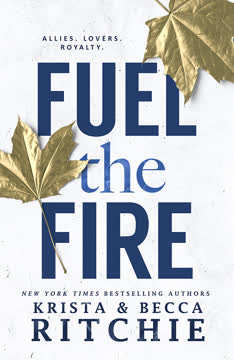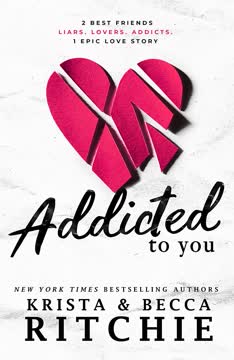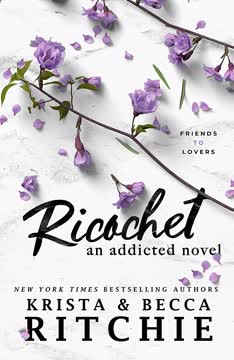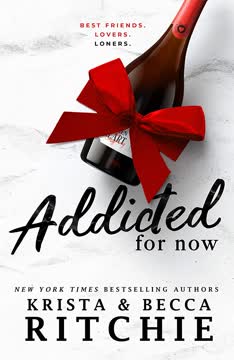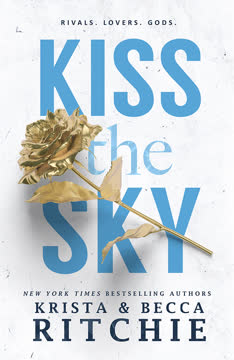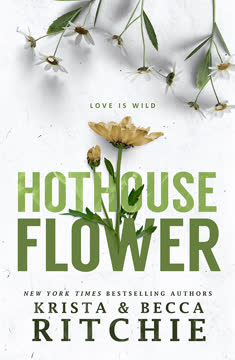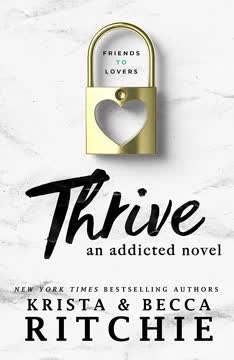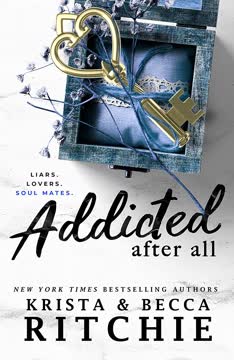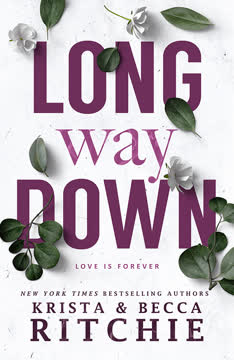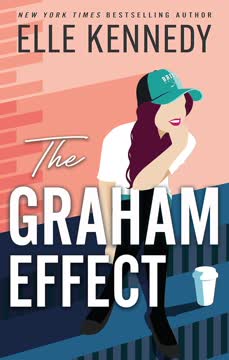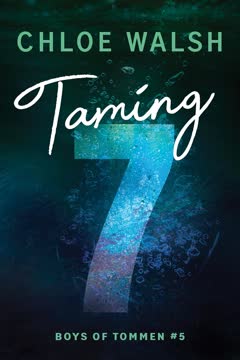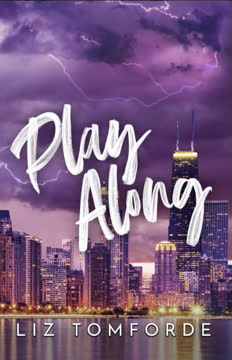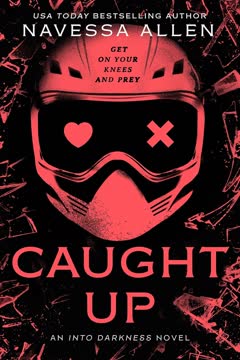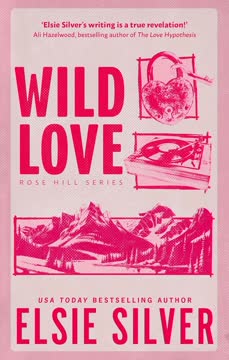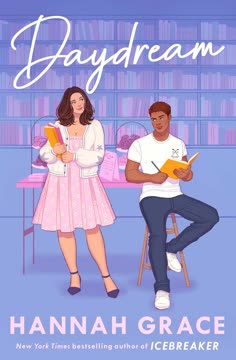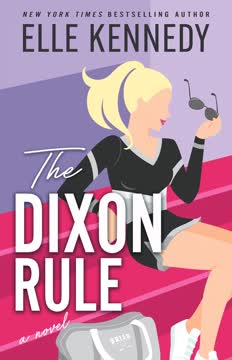Plot Summary
Rivals Meet, Sparks Fly
At fifteen, Connor Cobalt is a prodigy determined to be taken seriously, while Rose Calloway is a fierce, competitive girl with a sharp tongue. Their first meeting at a Model UN conference is a battle of wits and pride, setting the tone for their relationship. Both are used to being the smartest in the room, and their rivalry quickly turns into mutual fascination. Their banter is electric, and beneath the antagonism, a deep connection forms. This early dynamic—competition, challenge, and respect—becomes the foundation for their future love, as they push each other to be better, never settling for mediocrity. Their story is not one of instant romance, but of two equals who find excitement in each other's intellect and ambition.
Marriage, Media, and Maneuvering
Years later, Connor and Rose are married, living in the public eye as part of a famous, wealthy family. Their relationship is a partnership of equals, but the media's relentless attention forces them to strategize every move. They are surrounded by family—sisters, brothers-in-law, and friends—each with their own struggles and scandals. The couple's love is cerebral and passionate, but their privacy is constantly invaded. To protect their family, especially their infant daughter Jane, they make a secret deal with a tabloid: in exchange for burying a damaging story about their relatives, they agree to stage and feed the press salacious headlines about themselves. This calculated sacrifice is the first of many, as they learn that love sometimes means playing the villain for the greater good.
Scandalous Deals and Sacrifice
Connor and Rose's arrangement with the media is both a shield and a burden. They orchestrate public displays—racy photos, shocking hair changes, and staged arguments—to keep the press distracted from their vulnerable loved ones. Each act chips away at their comfort and reputation, but they are united in purpose. The cost is high: their marriage is questioned, their parenting criticized, and their motives doubted. Yet, they refuse to let their daughter or their extended family become tabloid fodder. Their willingness to endure humiliation and misunderstanding for the sake of others reveals the depth of their commitment—not just to each other, but to the entire family.
Parenting in the Spotlight
Jane's birth brings joy and anxiety. The couple grapples with the ethics of raising a child in the public eye, knowing Jane has no say in her exposure. Rose, fiercely protective, is haunted by the idea that her daughter's life will be shaped by paparazzi and gossip. Connor, usually rational and detached, finds himself transformed by fatherhood, willing to move mountains for Jane's safety. Together, they devise elaborate plans to redirect attention away from their child, even as they struggle with guilt and uncertainty. Their parenting is a blend of love, strategy, and sacrifice, as they try to give Jane a normal life in extraordinary circumstances.
The Price of Protection
The couple's efforts to shield their family come at a personal cost. Their staged scandals strain their relationship with friends and family, who are kept in the dark for their own protection. The emotional toll is heavy: Rose's obsessive-compulsive tendencies worsen under stress, and Connor's carefully constructed emotional detachment begins to crack. They are forced to confront the limits of their own resilience, questioning whether the ends justify the means. The price of protection is not just public shame, but private pain—yet they persist, believing that love sometimes means bearing the weight of the world for those you cherish.
Family, Friends, and Fallout
Living in a house full of siblings, in-laws, and friends, Connor and Rose navigate a web of complex relationships. Each person faces their own battles—addiction, trauma, mental health, and the scars of fame. The couple's secret deal with the media creates rifts, as loved ones sense something is amiss. When the truth begins to surface, trust is tested. The family must confront not only external threats, but the internal fallout of secrets and sacrifices. Through arguments, reconciliations, and moments of vulnerability, the bonds of family and friendship are both strained and strengthened.
The Art of Deception
Connor and Rose are masters of strategy, using intellect and manipulation to outwit the media and protect their own. Their games—both in public and private—are a testament to their compatibility and shared ambition. Yet, the line between performance and reality blurs, and the cost of constant deception mounts. They must learn when to drop the mask and be vulnerable with each other, trusting that their love can withstand the chaos they have created. The art of deception is both their greatest weapon and their greatest challenge.
Public Scrutiny, Private Pain
A devastating leak exposes Connor's past relationships with men, and the media explodes with speculation about his sexuality and the authenticity of his marriage. The couple is accused of orchestrating a sham relationship, and their love is dissected and doubted by millions. Friends and family are caught in the crossfire, and Connor faces pressure to label himself for public consumption. The pain of being misunderstood and maligned is acute, but Rose and Connor refuse to let others define their truth. Their private pain becomes a crucible, forging a deeper connection as they cling to each other in the storm.
The Test of Love
The press conference becomes a defining moment. Connor, refusing to be boxed in by labels, delivers a speech that is both vulnerable and defiant. He refuses to deny his past or his love for Rose, insisting that their marriage is real and their love is unique. Rose stands by his side, unwavering in her support. Their love is tested by public opinion, family doubt, and personal demons, but it endures. They learn that true love is not about appearances or approval, but about choosing each other—again and again—no matter the cost.
Breaking Points and Betrayals
The couple's greatest enemy, Scott Van Wright, is finally brought down when it's revealed he possesses illegal footage of a minor. With the help of family and friends, Connor and Rose orchestrate his downfall, reclaiming control over their lives and their narrative. The betrayal of a trusted family friend, Jonathan Hale, is confronted and ultimately forgiven, as the family chooses unity over division. The breaking points become turning points, as the family emerges stronger and more united than before.
Sisterhood and Surrogacy
Daisy, Rose's youngest sister, faces a devastating diagnosis that threatens her ability to have children. The sisters rally around her, offering love, support, and even the promise of surrogacy. Their bond, forged through years of rivalry and reconciliation, becomes a source of strength and healing. The theme of sisterhood—of women supporting each other through life's trials—runs deep, reminding Rose of the importance of family and the power of unconditional love.
The Fall of an Enemy
With Scott imprisoned and the sex tapes destroyed, Connor and Rose finally reclaim their privacy and peace. The victory is hard-won, achieved through cunning, courage, and the willingness to endure pain for a greater good. The family celebrates together, acknowledging the trials they have survived and the love that has carried them through. The fall of their enemy marks the end of an era of fear and the beginning of a new chapter.
Reclaiming Intimacy
Freed from the shadow of scandal and blackmail, Connor and Rose rediscover the joy and intimacy that first drew them together. They learn to forgive themselves and each other for the compromises and betrayals required by survival. Their relationship, once defined by games and strategy, becomes a sanctuary of honesty and passion. They embrace their flaws and limitations, finding strength in vulnerability and the courage to love without reservation.
The Power of Truth
Connor's refusal to be defined by labels becomes a powerful statement, inspiring others to accept themselves and those they love. The couple's journey—marked by pain, sacrifice, and resilience—becomes a testament to the power of truth and the importance of living authentically. Their story challenges the world to see love in all its forms, to question assumptions, and to embrace complexity. In the end, their greatest victory is not in outwitting their enemies, but in remaining true to themselves and each other.
A New Beginning Together
With the family united, enemies vanquished, and wounds healing, Connor and Rose move into a new home, ready to begin the next chapter of their lives. They dream of more children, of laughter and chaos, of a future built on love and trust. The past is not forgotten, but it no longer defines them. Surrounded by family and friends, they celebrate the power of love to overcome adversity, the strength of partnership, and the promise of new beginnings. Their story ends not with a final victory, but with the hope and certainty that, together, they can face whatever comes next.
Characters
Connor Cobalt
Connor is a genius, fiercely competitive, and often emotionally detached. Raised to value intellect above all, he struggles with vulnerability and empathy, using logic and manipulation to navigate life's challenges. His marriage to Rose is both a partnership and a battleground, as they challenge and inspire each other. Fatherhood transforms him, awakening a fierce protectiveness and a willingness to sacrifice for his family. Connor's journey is one of learning to feel deeply, to accept love, and to define himself on his own terms. His bisexuality and refusal to be labeled become central to his identity, as he chooses authenticity over appeasement. His relationships—with Rose, his friends, and his daughter—reveal a man who is both formidable and deeply human, capable of great love and great pain.
Rose Calloway
Rose is a force of nature—intelligent, ambitious, and unyielding. She is both a perfectionist and a rebel, unafraid to speak her mind or challenge authority. Her love for Connor is rooted in respect and equality, and their relationship is a constant dance of competition and desire. As a mother, Rose is fiercely protective, willing to endure public humiliation and private pain to shield her daughter. Her struggles with OCD and anxiety are exacerbated by fame, but she refuses to be defined by her weaknesses. Rose's journey is one of embracing vulnerability, learning to trust, and finding strength in sisterhood. Her willingness to be a surrogate for her sister Daisy exemplifies her capacity for selfless love.
Jane Cobalt
Jane is the infant daughter of Connor and Rose, the center of their world and the catalyst for many of their sacrifices. Her presence forces her parents to confront the realities of fame, privacy, and parenting. Jane symbolizes hope, innocence, and the future they are fighting to protect. Her milestones—first words, first steps—are celebrated as victories against a world determined to invade her childhood.
Daisy Calloway
Daisy is Rose's youngest sister, known for her adventurous spirit and open heart. Beneath her carefree exterior lies a history of trauma and struggle, including a devastating diagnosis that threatens her dreams of motherhood. Daisy's relationship with Ryke is a source of strength, and her willingness to fight for her own happiness inspires those around her. Her journey is one of healing, acceptance, and the courage to ask for help.
Ryke Meadows
Ryke is Daisy's boyfriend and Connor's unlikely friend. He is fiercely loyal, unafraid to speak the truth, and willing to endure pain for those he loves. His relationship with Daisy is marked by devotion and protectiveness, and his friendship with Connor evolves from rivalry to deep respect. Ryke's struggles with family, identity, and self-worth are central to his character, and his willingness to forgive and fight for others makes him indispensable.
Loren Hale
Loren is Rose's brother-in-law and Connor's best friend. A recovering alcoholic, he is sharp-tongued, self-deprecating, and deeply loyal. His marriage to Lily is a testament to the power of love to overcome addiction and adversity. Loren's friendship with Connor is tested by scandal and betrayal, but ultimately endures. His journey is one of redemption, forgiveness, and the search for belonging.
Lily Calloway
Lily is Rose's sister and Loren's wife, struggling with sex addiction and the pressures of fame. She is gentle, compassionate, and often underestimated. Her support for her sisters and her willingness to champion their love stories make her a unifying force in the family. Lily's journey is one of self-acceptance, healing, and the quiet power of kindness.
Poppy Calloway
Poppy is the eldest Calloway sister, a calming presence and a source of wisdom. She is a devoted wife and mother, often acting as a mediator in family conflicts. Poppy's experiences with love, loss, and motherhood inform her advice and support for her sisters. Her journey is one of balance, acceptance, and the quiet strength of enduring love.
Scott Van Wright
Scott is the primary antagonist, a former producer who exploits the family for profit and pleasure. His possession of illegal footage and willingness to blackmail make him a constant threat. Scott's downfall is orchestrated by Connor and Rose, who use his own arrogance and greed against him. His character represents the dangers of unchecked power and the importance of justice.
Jonathan Hale
Jonathan is Loren's father, whose actions—rooted in fear and insecurity—set off the central scandal. His betrayal forces the family to confront their own loyalties and values. Jonathan's journey is one of regret, self-preservation, and the slow path to redemption. His presence is a reminder that even those we love can cause great harm, and that forgiveness is both necessary and difficult.
Plot Devices
Dual Narration and Shifting Perspectives
The novel alternates between Connor and Rose's points of view, allowing readers to experience both the cerebral and emotional sides of their relationship. This dual narration deepens the psychological complexity, revealing how each character processes love, pain, and strategy. The shifting perspectives also highlight the differences in how men and women are perceived and judged, especially in the public eye.
Public vs. Private Selves
A central device is the tension between the couple's public personas and their private realities. They stage scandals, manipulate the media, and perform for the world, all while struggling to maintain authenticity in their marriage. The blurring of performance and reality raises questions about identity, truth, and the price of survival in a world that demands constant spectacle.
Games, Quizzes, and Intellectual Battles
Connor and Rose's relationship is built on games—quizzes, chess, and intellectual sparring. These games are both foreplay and communication, a way for them to express love, frustration, and desire. The motif of competition underscores their equality and mutual respect, while also serving as a metaphor for the larger battles they face together.
Foreshadowing and Parallelism
The novel uses foreshadowing—early rivalries, staged scandals, and family secrets—to set up later conflicts and resolutions. Parallel storylines (sisterhood, parenthood, betrayal) reinforce the themes of sacrifice and resilience. The structure allows for emotional payoffs and the sense that every choice, no matter how small, has lasting consequences.
The Test and Its Consequences
Connor and Rose's "test"—to see if they can protect their child by manipulating the media—serves as the novel's central plot device. The test's failure and the resulting fallout force the characters to confront the limits of control, the unpredictability of fate, and the necessity of adaptation. The test is both literal and symbolic, representing the risks inherent in love and parenthood.
Analysis
Fuel the Fire is a masterclass in the psychology of love, power, and survival under scrutiny. Krista Ritchie crafts a story where intellect and emotion are equally matched, and where the greatest battles are fought not just in public, but within the self. The novel interrogates the cost of protection—how far we will go to shield those we love, and what we are willing to sacrifice in the process. It challenges the reader to consider the difference between performance and authenticity, and the courage required to live one's truth in a world that demands conformity. Through the lens of fame, family, and scandal, the book explores the resilience of partnership, the strength of sisterhood, and the redemptive power of vulnerability. Ultimately, Fuel the Fire is a celebration of love that is hard-won, fiercely defended, and utterly transformative—a reminder that the truest victories are those achieved together, against all odds.
Last updated:
FAQ
0. Synopsis & Basic Details
What is Fuel the Fire about?
- Strategic Love Under Scrutiny: Fuel the Fire delves into the complex marriage of brilliant strategists Connor Cobalt and Rose Calloway, who navigate relentless media scrutiny and family drama. To protect their infant daughter, Jane, and their extended family from damaging tabloid stories, they make a secret pact to intentionally feed the press scandalous, staged headlines about themselves.
- Sacrifice for Family: The narrative explores the profound sacrifices Connor and Rose make, enduring public humiliation and personal pain to divert attention from their loved ones. This includes orchestrating racy photos, dramatic hair changes, and public displays of affection, all while maintaining a facade of indifference or conflict.
- Unveiling Deeper Truths: Beyond the media circus, the story uncovers hidden family secrets, confronts past traumas, and tests the bonds of sisterhood and friendship. It culminates in a powerful stand against a manipulative enemy, a devastating family betrayal, and a journey towards authentic love and self-acceptance amidst chaos.
Why should I read Fuel the Fire?
- Intellectual & Emotional Depth: Readers are drawn into a world where sharp intellect and profound emotion collide, offering a unique blend of strategic maneuvering and heartfelt vulnerability. The dual narration provides deep insight into Connor and Rose's complex inner lives, revealing layers often missed in typical romance.
- Unconventional Love Story: This isn't a fairytale romance; it's a partnership built on mutual respect, fierce competition, and unwavering loyalty, challenging traditional notions of love. Their banter, intellectual sparring, and unwavering support for each other make their relationship compelling and aspirational.
- Themes of Identity & Protection: The novel tackles significant themes like the cost of fame, the struggle for privacy, and the lengths parents go to protect their children. It also explores self-acceptance, forgiveness, and the power of family unity in the face of external pressures and internal conflicts.
What is the background of Fuel the Fire?
- Addicted Series Continuation: Fuel the Fire is part of the "Calloway Sisters" spin-off series, deeply intertwined with the "Addicted" series, focusing on the lives of the Calloway sisters and their partners. It builds upon established character histories and relationships, particularly the intense rivalry and eventual marriage of Connor Cobalt and Rose Calloway.
- Post-Reality TV Fame: The characters live in a world shaped by their past participation in a reality show, "Princesses of Philly," which catapulted them into intense public scrutiny. This background establishes the constant media presence and the characters' learned strategies for dealing with fame, setting the stage for their current challenges.
- Interconnected Family Saga: The story is set within a large, interconnected family unit, where each member's personal struggles (addiction, trauma, mental health) and public image influence the others. The events of Fuel the Fire directly impact and are impacted by the ongoing lives of Lily, Loren, Daisy, and Ryke, creating a rich, multi-layered narrative.
What are the most memorable quotes in Fuel the Fire?
- "I'm tragically in love with you, and I wouldn't want it any other way." (Rose, Chapter 23): This quote encapsulates Rose's complex, all-consuming love for Connor, acknowledging the inherent drama and intensity of their relationship. It highlights her acceptance of their unique dynamic, where passion and challenge are intertwined.
- "The reasonable man adapts himself to the world: the unreasonable one persists in trying to adapt the world to himself. Therefore all progress depends on the unreasonable man." (George Bernard Shaw, highlighted by Ryke, Chapter 53): This philosophical quote, gifted by Ryke to Connor, becomes a pivotal insight into Connor's character arc. It challenges his lifelong adherence to logic and adaptation, suggesting that true progress and self-actualization might require him to be "unreasonable" and defy societal expectations.
- "I am, I am, I am." (Sylvia Plath, quoted by Connor, Chapter 54): Connor's powerful closing statement at the press conference, a declaration of self-existence and unwavering identity, despite external pressures to label him. It signifies his ultimate refusal to conform and his assertion of his authentic self, a profound moment of personal liberation.
What writing style, narrative choices, and literary techniques does Krista Ritchie use?
- Sharp, Witty Dialogue & Banter: Ritchie excels at crafting rapid-fire, intelligent dialogue, especially between Connor and Rose, filled with literary allusions, philosophical debates, and cutting sarcasm. This serves not only as entertainment but as a primary mode of communication and foreplay, revealing character dynamics and intellectual compatibility.
- Deep Internal Monologue & Dual POV: The alternating first-person perspectives of Connor and Rose offer intimate access to their thoughts, fears, and motivations, often contrasting their outward composure with their inner turmoil. This technique, as noted in the existing analysis, deepens psychological complexity and allows readers to understand the unspoken emotional undercurrents of their actions.
- Symbolism & Metaphorical Language: The authors frequently employ symbolism, such as the chess game representing their strategic battles and relationship dynamics, or the recurring motif of fire and ice to describe Rose and Connor's contrasting yet complementary personalities. Connor's use of literary quotes often serves as a metaphorical lens through which he processes his emotions and the world around him.
1. Hidden Details & Subtle Connections
What are some minor details that add significant meaning?
- Connor's Model UN Prologue: The opening scene, set when Connor is fifteen, establishes his core personality: a need for control, a disdain for being underestimated due to age, and a belief that "people are malleable." This seemingly minor detail foreshadows his lifelong strategic approach to relationships and challenges, including his elaborate manipulation of the media and Scott Van Wright. His immediate fascination with Rose's "hellfire eyes" also subtly hints at their destined, intense connection.
- Rose's OCD Triggers: Throughout the book, Rose's obsessive-compulsive tendencies are subtly highlighted, particularly in moments of high stress. Her need for order is evident when she meticulously cleans Loren's desk (Chapter 16), struggles with misaligned chairs in the pediatrician's waiting room (Chapter 41), or is distressed by scattered chess pieces (Chapter 14). These details underscore her internal anxiety and the immense pressure she feels, revealing a vulnerability beneath her fierce exterior that the public rarely sees.
- Ryke's Hidden Intelligence: Ryke's casual use of multiple languages (French, Italian, Spanish) and his reading of complex literature like The Handmaid's Tale (Chapter 33) are subtle revelations that contradict his "unshaven foul-mouthed roommate" persona. This hidden intellectual depth, often suppressed due to his upbringing, explains his ability to understand Connor's manipulations and his deep empathy for Daisy, who also struggles with identity and societal expectations.
What are some subtle foreshadowing and callbacks?
- Rose's "Inanimate Object" Comment: Early in the story, Rose recalls telling a story about stabbing a doll and saying, "I won't care for an inanimate object unless the boys do it too" (Chapter 16). This seemingly throwaway line subtly foreshadows her later, profound offer to carry Daisy's child, demonstrating her deep capacity for selfless love and her willingness to "care" for a life, even if it's not biologically her own, driven by her fierce loyalty to her sister.
- Connor's "Rat Snake" Analogy: Connor's detailed explanation of the "Aesculapian snake" and "rat snake" to Scott Van Wright (Chapter 60) is a chilling callback to his own calculated deception. He describes how a captive rat snake will "swallow its own body and eventually self-cannibalize," a metaphor for Scott's self-destructive greed and arrogance, which Connor expertly exploited. This highlights Connor's long-game strategy and his ability to use psychological warfare.
- The "Hot-Tempered Triad" Nickname: Lily's casual nickname for Rose, Loren, and Ryke as "the hot-tempered triad" (Chapter 11) is a recurring callback that subtly defines their shared volatile nature. It foreshadows their collective, passionate reactions to injustice, particularly against Scott Van Wright and Jonathan Hale, contrasting with Connor's more controlled, strategic approach.
What are some unexpected character connections?
- Connor and Frederick's Deep History: Frederick, Connor's therapist, reveals he's known Connor since he was twelve (Chapter 55), long before Rose entered his life. This deep, long-standing connection is unexpected, as Connor rarely shows vulnerability. Frederick's insight that Connor "lacked so much empathy for the human race" until he met Rose provides a crucial, external validation of Rose's transformative impact on Connor's emotional development.
- Garrison's Faust Connection: Garrison, the teenage neighbor who once terrorized the family, reveals he flunked out of Faust Boarding School (Chapter 48), the same elite institution Connor attended. This unexpected link creates a parallel between their formative experiences, showing how different individuals navigate similar environments. It also highlights Connor's surprising empathy for Garrison's struggles, offering advice rooted in his own past.
- Theo Balentine's Continued Presence: Theo, Connor's ex-boyfriend from prep school, reappears as Loren's marketing assistant at Hale Co. (Chapter 15). This connection is significant because Theo refused to sign an NDA about his past with Connor, citing moral reasons (Chapter 16). His continued presence in their professional lives, and his surprising integrity, underscores the theme of past actions having long-term, unpredictable consequences, and challenges Connor's cynical view of human nature.
Who are the most significant supporting characters?
- Ryke Meadows: Ryke's significance extends beyond being Daisy's boyfriend; he acts as a moral compass and an emotional anchor for the family. His unwavering loyalty, blunt honesty, and self-sacrificing nature (donating part of his liver, offering to be punched for Connor) make him a crucial counterpoint to Connor's calculated logic. He's the first to truly understand Connor's secret media strategy and offers genuine support, solidifying their complex friendship.
- Daisy Calloway: Daisy's journey from a free-spirited, somewhat naive teenager to a resilient woman facing a devastating health diagnosis is central to the novel's emotional core. Her vulnerability and dreams of motherhood catalyze the sisters' unity and Rose's profound offer of surrogacy. Her past trauma (Paris riot, modeling) and present struggles with PTSD and fertility highlight themes of resilience and the power of sisterly love.
- Jonathan Hale: Loren's father, Jonathan, serves as a critical antagonist whose betrayal (leaking Connor's past) drives the central conflict of the media scandal. His actions, though rooted in a misguided attempt to protect Loren, force the family to confront deep-seated issues of trust, forgiveness, and the definition of family loyalty. His eventual, albeit reluctant, participation in Jane's birthday luncheon signifies a slow path towards reconciliation.
2. Psychological, Emotional, & Relational Analysis
What are some unspoken motivations of the characters?
- Connor's Need for Validation: Beneath Connor's outward arrogance and self-proclaimed superiority lies a subtle, unspoken need for validation, particularly from Rose and his close friends. His constant banter and challenges, even when seemingly conceited, are often bids for engagement and recognition of his intellect and worth. His confession to Frederick about feeling "less than human" when he doesn't feel (Chapter 45) hints at a deeper desire for emotional connection, even if he struggles to express it.
- Rose's Desire for Control: Rose's fierce protectiveness and occasional "bitch boss" persona are often driven by an unspoken need for control, stemming from her anxiety and the chaotic nature of her public life. Her meticulous planning, her insistence on rules, and her distress over disorder (like misaligned chairs) are all manifestations of this need. Her willingness to engage in Connor's manipulative games is partly because it gives her a sense of agency in a world that constantly tries to control her narrative.
- Jonathan Hale's Fear of Irrelevance: Jonathan's drastic action of leaking Connor's past is implicitly motivated by a deep-seated fear of losing control and relevance in his son Loren's life. As Loren takes over Hale Co. and forms a strong bond with Connor, Jonathan feels threatened and unneeded. His desperate attempt to "separate" them (Chapter 37) is a misguided effort to reassert his paternal authority and importance, revealing his own insecurities.
What psychological complexities do the characters exhibit?
- Connor's Narcissism & Empathy Paradox: Connor presents as a narcissist, valuing logic and self-interest above all, yet he consistently demonstrates profound empathy and selflessness for those he loves. His willingness to sacrifice his reputation for Moffy and Jane, and his deep emotional pain when hurting Rose, reveal a complex internal struggle. He explicitly states, "I don't know how to wallow... but I assure you, grief is" (Chapter 36), indicating a unique way of processing emotions that defies simple categorization.
- Rose's Controlled Volatility: Rose is a paradox of fiery passion and rigid control. Her "hellfire eyes" and sharp tongue mask a deep-seated anxiety and a need for order, often manifesting as OCD tendencies. Her internal monologues reveal a constant battle between her impulsive, destructive urges and her desire to maintain composure and protect her loved ones. Her ability to channel her rage into strategic action, rather than pure emotional outburst, showcases her complex psychological resilience.
- Ryke's Suppressed Identity: Ryke's character is complex due to his suppressed intellectual identity, a consequence of his upbringing where he was forced to conform to his mother's expectations. His reluctance to showcase his intelligence (languages, reading) and his struggle to articulate his feelings (Chapter 33) highlight the lasting impact of parental manipulation. His deep loyalty and protectiveness, especially towards Daisy and Loren, are rooted in his own past experiences of feeling unvalued and misunderstood.
What are the major emotional turning points?
- Rose's Closet Breakdown: After the media exposes Connor's past and questions their marriage, Rose retreats to the closet and screams into her fur coat (Chapter 35). This raw, unfiltered emotional outburst, hidden from everyone but eventually shared with Connor, marks a critical breaking point where her carefully constructed composure shatters, revealing the depth of her pain and fear for Jane's future.
- Connor's Confession of Self-Hatred: Following his manipulative meeting with Scott, Connor confesses to Rose, "I hate myself for what I just did" (Chapter 45), admitting the profound emotional toll of his actions. This rare moment of vulnerability, accompanied by tears, is a significant turning point, showing his capacity for remorse and his struggle with the moral compromises he made for his family.
- Daisy's Fertility Diagnosis: Daisy's tearful revelation of her endometriosis and the potential loss of her ability to have children (Chapter 49) is a devastating emotional turning point for the entire family. It galvanizes the sisters, leading to Rose's selfless offer of surrogacy, and highlights the deep bonds of sisterhood and the profound impact of shared vulnerability.
How do relationship dynamics evolve?
- Connor and Rose: From Rivals to Unbreakable Teammates: Their relationship evolves from intellectual sparring partners in prep school to a deeply intimate, strategic partnership. The media crisis forces them to become an even more formidable team, relying on each other's unique strengths—Connor's logic and Rose's passion. Their journey culminates in a profound understanding of each other's vulnerabilities and a shared commitment to an "unreasonable" future, as seen in their decision to have more children despite the risks.
- Loren and Ryke: Healing Brotherly Wounds: The strained, often antagonistic relationship between Loren and Ryke transforms into one of deep mutual support and understanding. Ryke's liver donation to Jonathan, and Loren's subsequent protectiveness, solidify their bond. They learn to communicate more openly, with Ryke sharing his past trauma and Loren offering unwavering loyalty, even when it means defying their father.
- The Calloway Sisters: Forged in Fire: The sisters' relationships deepen significantly through shared crises, particularly Daisy's fertility struggles and the media's attacks. Rose's offer of surrogacy to Daisy (Chapter 49) is a powerful testament to their unbreakable bond, transcending past rivalries and age gaps. They learn to lean on each other, offering emotional support and practical solutions, reinforcing the theme of sisterhood as a vital source of strength.
3. Interpretation & Debate
Which parts of the story remain ambiguous or open-ended?
- Connor's Exact Sexual Identity: While Connor explicitly states he has "slept with many different kinds of people" (Chapter 54) and refuses to be labeled as heterosexual, he also declines to identify with any specific queer term. His declaration, "I can't be what you need me to be... you're accepting me as me," leaves his precise sexual orientation open-ended. This ambiguity challenges readers to accept identity beyond conventional labels, reflecting his belief in being attracted to "people" rather than specific genders.
- Long-Term Impact of Fame on Children: Despite Connor and Rose's efforts to shield Jane and future children from the media, the novel acknowledges that "the ones online will never disappear" (Chapter 57). The ending, with the family moving to a new house and dreaming of more children, offers hope but doesn't definitively resolve the long-term psychological impact of growing up in the spotlight. Readers are left to ponder whether their strategies will truly protect their children's innocence in the long run.
- The Future of Daisy's Fertility: Daisy's diagnosis of endometriosis and the potential need for surgery to remove her ovaries leaves her future ability to conceive naturally uncertain. While Rose offers surrogacy, the emotional and physical journey for Daisy remains open-ended. The story emphasizes hope and sisterly support, but the ultimate outcome of her personal dream of carrying a child is not definitively resolved within the book.
What are some debatable, controversial scenes or moments in Fuel the Fire?
- Connor's Manipulation of Scott Van Wright: Connor's calculated befriending and subsequent psychological dismantling of Scott Van Wright (Chapters 57, 59, 60) is highly debatable. While it leads to Scott's arrest for child pornography, Connor's methods involve extensive deception, feigned friendship, and even bad-mouthing Rose. This raises questions about the morality of his actions, even when the outcome is just, and whether the ends always justify such manipulative means.
- The Family's Initial Judgment of Connor's Past: The reactions of Rose's parents, Samantha and Greg, and even Poppy, to Connor's past relationships with men (Chapter 36) are controversial. Their immediate concern for "reputation" and "business arrangements" over Connor's feelings, and Greg's question of whether Connor "manipulated" Rose, highlight societal prejudices and the difficulty of acceptance, even within a close family.
- Rose's "Cold" Parenting Comments: Early in the book, Rose's tweet, "Every time the little gremlin wails, my ovaries kill an egg. I'm going to be barren soon" (Chapter 36), is presented as a controversial comment that the media uses against her. This, coupled with her past statements about "hating children," sparks debate about her maternal instincts and whether her fierce protectiveness is truly love or a form of control. The book later clarifies these as jokes or past fears, but their initial impact is significant.
Fuel the Fire Ending Explained: How It Ends & What It Means
- Victory Over Scott & Reclaiming Narrative: The story culminates in the successful downfall of Scott Van Wright, who is arrested for child pornography involving Daisy (Chapter 59, 60). This signifies a major victory for the family, not just in eliminating a blackmailer but in reclaiming control over their private lives and narrative. The destruction of the sex tapes by Connor and Rose (Chapter 57) symbolizes their liberation from past exploitation and a step towards healing.
- Family Unity & Forgiveness: The ending emphasizes the profound unity of the extended family. Jonathan Hale's betrayal is confronted, and while not fully forgiven, his presence at Jane's birthday luncheon (Chapter 62) marks a step towards reconciliation. The family rallies around Daisy after her diagnosis, with Rose offering surrogacy, solidifying their unbreakable bonds. This collective strength ensures their children will be raised in an environment of love and support, free from internal feuds.
- **[Connor's](#connor-
Review Summary
Fuel the Fire receives overwhelmingly positive reviews, with readers praising the deep character development of Connor and Rose. The book explores themes of love, family, and societal pressures, showcasing the couple's unwavering commitment to each other. Fans appreciate the witty banter, emotional depth, and steamy romance. Many consider it a powerful installment in the Addicted series, highlighting the growth of all characters. Readers express their attachment to the core six and their excitement for future books in the series.
Addicted World Series
Similar Books
Download PDF
Download EPUB
.epub digital book format is ideal for reading ebooks on phones, tablets, and e-readers.
